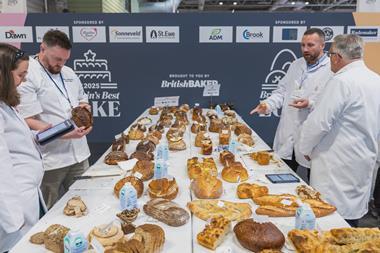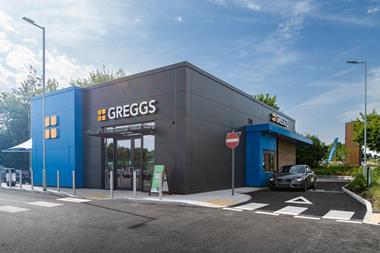In his weekly blog, Konditor & Cook’s Gerhard Jenne discusses apprenticeships in the UK.
I read with interest what Craft Bakers’ Association president Anthony Kindred had to say about apprenticeships on 20 November (see original story here). He commented on the lack of publicity for apprenticeships, and yet how, in his opinion, they provide young people with vital trading skills.
This particularly resonated with me, as this week we said goodbye to four interns sent to Konditor & Cook from a vocational college in Sweden.
They spend four weeks with us, working alongside our bakers and cake decorators, gaining insight into what we do over here – and a little bit more besides. Some arrive rather innocent, then leave seduced by our delicious brownies, as well as the multicultural and relatively youthful vibe a London bakery has to offer.
In Sweden, the training for bakers is mainly college-based: two days of baking, two days of baking-related theory and one day in general education. During term breaks students seek placements in the baking industry.
This is different to the German system, which is a dual partnership of employers and vocational colleges. Having gone through two very well-structured apprenticeships myself, first as a baker and then as a pastry chef (Konditor), I have always found it bewildering how training in the UK worked.
Never mind their publicity, do apprenticeships even exist? Or are they just schemes politicians decorate themselves with during election times?
There is not much I miss about Germany besides proper pretzels and thirst-quenching beer, but the clarity of the way apprenticeship schemes and vocational training is structured is also worth mentioning.
Education in Germany is under the jurisdiction of the 16 Länder – ie. Bavaria, Baden-Württemberg etc – and can vary, but they all agree on apprenticeships. If you are a school-leaver you have the choice of carrying on to do A-levels then go to university, or you can enter into an apprenticeship scheme and learn a trade, anything from banker to baker. Generally, it’s a three-year scheme, but, depending on previous education, this can be reduced by six to 12 months.
At the beginning of an apprenticeship, a contract is signed between parents (in the case of minors) and employers. Salaries are staggered from year one to three and based on a minimum wage regulated by the Chambers of Commerce/Bakers’ Guild. Apprentices generally attend college once a week, making it easy to plan for employers, rather than blocking school terms favoured by colleges which argue a day release does not provide enough education.
Half-way through an apprenticeship an exam takes place. This is designed to test the apprentices’ skills, but also to check whether an employer has delivered adequate training. Questions will be asked if a trainee under-performs. The idea of the apprenticeship is not to provide cheap labour – although this is a much appreciated side-effect in many establishments. It’s not uncommon to have a ‘Meister’ (Master Baker) – the qualification needed to be a trainer – working with several apprentices. At the end of the three-year term, a final exam takes place. At this stage, both parties part ways, or a good apprentice may be taken on in a first fully paid job.
It appears the upshot of the British system is that anyone wanting to learn a trade has to make much more of an effort in figuring out how to do so. This, in turn, sorts out the wheat from the chaff and leads to independent thinking and more engaged trainees – whether they are learning on the job or are interns. However, as an employer, I would welcome a clearer system.
When I was a judge on BBC3’s Young Baker of the Year I got the impression that there is much more of a tradition for apprenticeships ‘up north’. Bakers who attended Tameside College, in particular, stood out. The eventual winner, Oliver Campbell, who trained at Slattery’s in Manchester, was a prime example.
































No comments yet